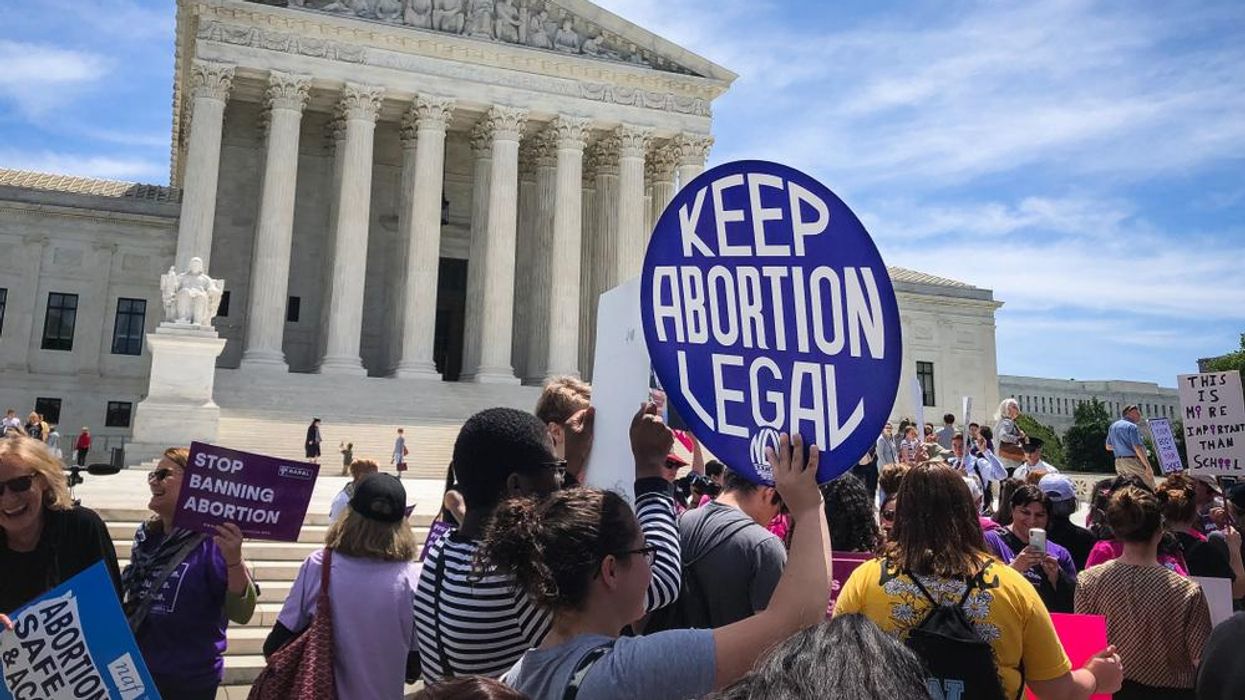The Supreme Court made their landmark decision to overturn Roe v. Wade, the case securing abortion rights in the US, almost exactly six months ago. Since then, the right to choose has been left in the hands of the states.
While several states have chosen to protect abortion access in the aftermath of the Dobbs v. Jackson decision, many others had "trigger laws" banning the procedure go into effect as soon as the ruling was handed down.
"Both those legal changes happened, and we went to this patchwork," Katie Watson, an associate professor of medical social sciences at Northwestern University, told ABC News. "And states took different positions and it's still in flux six months later."
The Guttmacher Institute reports that in 14 states, abortion outright banned or strictly limited. Alabama, Arkansas, Idaho, Kentucky, Louisiana Mississippi, Missouri, Oklahoma, South Dakota, Tennessee, Texas, and West Virginia all have bans with few exceptions.
Abortion services in Wisconsin have also stopped "due to legal uncertainty around the status of the state's pre-Roe ban." Georgia has a six-week ban, with Arizona and Florida banning the procedure after 15 weeks. And in Indiana, North Dakota, Ohio, Utah, and Wyoming, courts are currently blocking abortion laws passed by state legislators.
Four states (Maine, Massachusetts, New Jersey, and New York) have passed legislation bolstering abortion access, with California, Massachusetts, New Jersey, New Mexico, New York, and Oregon collectively investing $250 million into abortion funding. Overall, 14 states have "shield laws" that protect patients who travel from out-of-state for the procedure.
Dr. Beverly Gray, an obstetrician and gynecologist in Durham, North Carolina, said that the state has seen an influx of patients ever since the Dobbs decision, the majority from a different state.
"With Florida having a 15-week ban, Georgia and Tennessee having fairly strict bans, and then South Carolina kind of going back and forth with bans, patients ended up coming to North Carolina for care," she said. "We're seeing a handful of patients almost every day in clinic that are traveling for care."
Gray added that the shifting political landscape and uncertain laws place an undue burden on patients seeking essential healthcare.
"I think it's really scary for patients who might find themselves in a situation that they weren't expecting and needing care and their providers may not be able to provide evidence-based care because of laws that are now in place," she said.
- Arizona Will Not Enforce 1864 Abortion Ban... Until Next Year ›
- Why Misinformation on Abortion Often Spreads in Spanish ›
- How Do Abortion Bans Impact Incarcerated Women? ›
- FDA to Allow Pharmacies to Dispense Abortion Pills - Advocate Channel ›
- South Carolina's Six-Week Abortion Ban Struck Down by State Supreme Court - Advocate Channel ›



















































